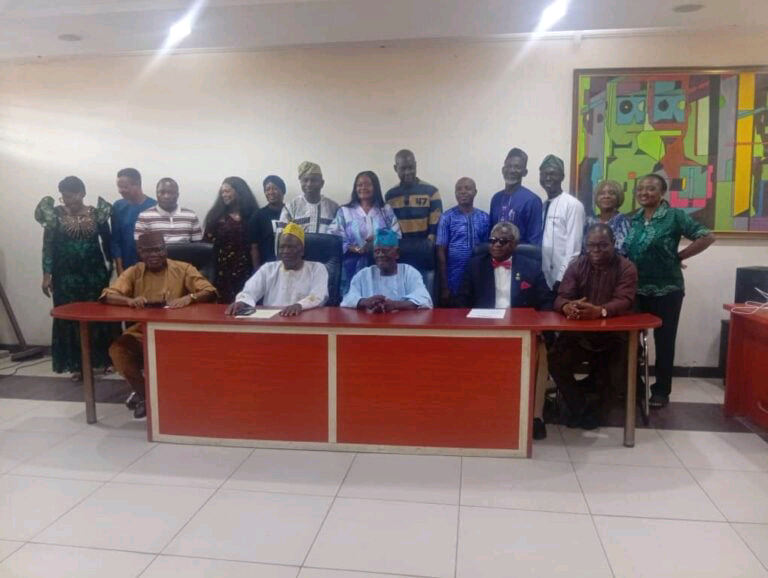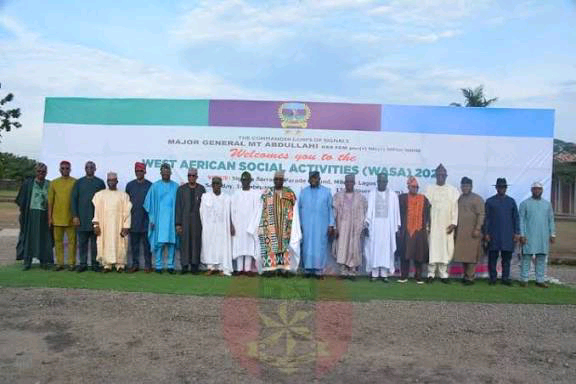My Husband Didn’t Loot any Money, Says Maryam Abacha, Defends His Legacy

Maryam Abacha, widow of Nigeria’s former military Head of State, General Sani Abacha, has once again rejected long-standing allegations that her late husband looted the nation’s treasury during his rule from 1993 to 1998.
In a recent interview with Kano Focus, the former First Lady called the widespread corruption claims “shameful lies” and defended her husband’s legacy against decades of scrutiny and international condemnation.
“How come this man was not a thief until he died? It is a shame to tell lies on a dead man,” she asked pointedly.
Maryam Abacha’s remarks come amid renewed public and legal discussions surrounding the vast sums—estimated between $2 billion and $5 billion—allegedly stolen during her husband’s regime and stashed in offshore accounts across Europe and the United States.
Despite the global recovery of hundreds of millions in what is widely referred to as “Abacha loot,” she remains adamant that the charges are false and politically motivated.
Her claims have been echoed by some of her late husband’s associates, including Lt. Gen. Ishaya Bamaiyi (rtd), a former Chief of Army Staff. Bamaiyi previously defended the Abacha government, asserting that funds moved abroad during the military regime were “kept for national security” and not misappropriated.
He has described the corruption narrative as a “media invention,” claiming that General Abacha was a “disciplined leader” who was unfairly vilified after his death.
However, Maryam Abacha’s defense has sparked criticism and disbelief from multiple quarters. Legal scholars and anti-corruption advocates, including Prof. Itse Sagay, former Chairman of the Presidential Advisory Committee Against Corruption (PACAC), have challenged her version of events.
“It is insulting to the intelligence of Nigerians to pretend that the billions recovered from various foreign jurisdictions were not looted.
“There is ample evidence, both from financial records and court rulings,” Sagay said in response to her claims.
Her son, Mohammed Abacha, is currently facing legal proceedings in Nigerian courts related to alleged misappropriation and receipt of stolen funds.
A 2024 Supreme Court ruling cleared the way for his prosecution, affirming that being a beneficiary of funds traced to looted public resources is grounds for criminal accountability, even decades after the fact.
Over the years, successive Nigerian governments have worked with international partners to repatriate portions of the stolen funds:
• $322.5 million was returned from Switzerland in 2017.
• Additional recoveries have come from the United Kingdom, the United States, Jersey, Ireland, and Liechtenstein.
• A 2023 Nigerian court ruling mandated the federal government to publish a full account of all funds looted by Sani Abacha and subsequently recovered since 1999.
Much of the recovered money has been earmarked for social welfare programs, infrastructure development, and poverty alleviation under World Bank-supervised initiatives.
Maryam Abacha also took aim at northern elites, especially in Kano—her husband’s home state—accusing them of failing to preserve his legacy and “betraying” his contributions to the nation.
“The Kano people have not done justice to my husband,” she lamented, suggesting that political rivalry and public amnesia have tainted the memory of her late husband,” he said.
Her comments have stirred controversy online and in the press, with many Nigerians expressing frustration at what they see as an attempt to rewrite history. Others have noted the emotional weight behind her comments, particularly as public debate over Sani Abacha’s legacy continues to divide opinion.
As Nigeria pushes forward with anti-corruption reforms and transparency efforts, the legacy of General Sani Abacha remains a flashpoint in the national conscience.
Whether seen as a brutal autocrat who pillaged the state or a misunderstood leader whose reputation was unfairly maligned, Abacha’s imprint on Nigerian history continues to provoke debate—even 27 years after his death.
With ongoing trials, further asset recoveries, and public interest in government accountability, the truth of what happened during the Abacha era may yet continue to unfold—despite protests to the contrary from those closest to him.








